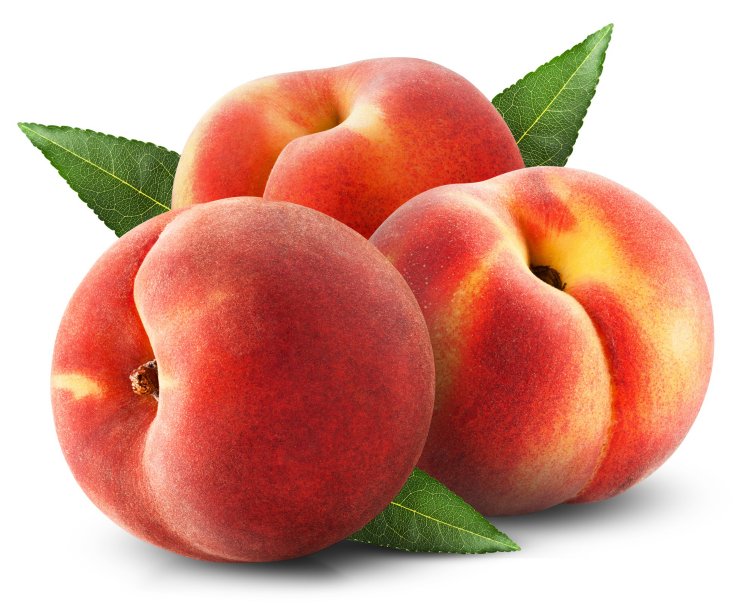The Delightful World of Peaches
Peaches, with their sweet and juicy flesh, have been a beloved fruit for centuries. Originating from Northwest China, peaches have spread across the globe and are now a staple in many cuisines and cultures. Their unique flavor and versatility make them a popular choice for both fresh consumption and culinary creations.

A Brief History
The history of peaches dates back to ancient China, where they were first domesticated over 4,000 years ago. They were highly prized and often associated with longevity and immortality in Chinese culture. The fruit made its way to Persia (modern-day Iran) and then to Europe through the Silk Road. By the 16th century, peaches were being cultivated in the Americas, brought over by Spanish explorers.
Varieties and Cultivation
Peaches come in two main varieties: clingstone and freestone. In clingstone peaches, the flesh clings to the pit, making them ideal for canning and preserving. Freestone peaches, on the other hand, have flesh that easily separates from the pit, which makes them perfect for eating fresh.
There are also white and yellow peaches. Yellow peaches have a tangy flavor balanced by sweetness, while white peaches are sweeter and less acidic. Both varieties are enjoyed worldwide and can be found in markets throughout the summer months.
Peach trees thrive in temperate climates with well-drained soil. They require a period of chilling during winter to produce fruit, which is why they are commonly grown in regions with distinct seasonal changes. Major peach-producing countries include China, Italy, Spain, and the United States, with states like Georgia and South Carolina leading production.
Nutritional Profile
Peaches are not only delicious but also highly nutritious. A medium-sized peach (about 150 grams) provides:
- Calories: 58
- Protein: 1 gram
- Fat: 0.4 grams
- Carbohydrates: 14 grams
- Fiber: 2 grams
- Sugars: 13 grams
- Vitamin C: 10 milligrams (16% of the daily value)
- Vitamin A: 489 IU (10% of the daily value)
- Potassium: 285 milligrams (8% of the daily value)
- Niacin (B3): 1.2 milligrams (6% of the daily value)
Peaches also contain small amounts of vitamin E, vitamin K, magnesium, phosphorus, and manganese.
Health Benefits
The health benefits of peaches are numerous, owing to their rich nutritional profile and the presence of antioxidants and bioactive compounds.
Rich in Antioxidants
Peaches are packed with antioxidants, such as vitamin C, polyphenols, and carotenoids, which help protect the body against oxidative stress and reduce inflammation. These antioxidants can also help prevent chronic diseases like heart disease, cancer, and diabetes.
Supports Digestion
The dietary fiber in peaches aids digestion by adding bulk to the stool, promoting regular bowel movements, and preventing constipation. Fiber also supports a healthy gut microbiome.
Boosts Immune System
The high vitamin C content in peaches helps strengthen the immune system, aiding in the prevention of illnesses and infections. Vitamin C also supports skin health by promoting collagen production.
Improves Heart Health
Potassium in peaches helps maintain healthy blood pressure levels by balancing the effects of sodium. Additionally, the antioxidants in peaches can help reduce cholesterol levels and improve overall cardiovascular health.
Promotes Skin Health
Peaches contain vitamins A and C, both of which are essential for healthy skin. Vitamin A helps repair skin tissues, while vitamin C helps protect against sun damage and promotes collagen synthesis, keeping the skin firm and youthful.
Supports Weight Management
Low in calories and high in water content, peaches are an excellent addition to a weight management plan. They can help you feel full and satisfied, reducing the likelihood of overeating.
Culinary Uses
Peaches are incredibly versatile in the kitchen. They can be enjoyed fresh, added to salads, or blended into smoothies. In baking, peaches are a favorite ingredient for pies, cobblers, and tarts. Grilled peaches make a delightful addition to savory dishes, pairing well with meats like pork and chicken. Preserved peaches, whether canned, dried, or made into jams, allow the enjoyment of this fruit year-round.
Cultural Significance
In many cultures, peaches hold symbolic meanings. In China, they are a symbol of immortality and unity. Peaches are often featured in Chinese art and mythology, representing good fortune and protection. Similarly, in Western cultures, peaches symbolize youth and vitality, often referenced in literature and art for their beauty and sweetness.
In conclusion, the peach is a fruit that transcends borders and cultures, cherished for its delightful flavor and numerous health benefits. Whether eaten fresh from the tree, baked into a pie, or sipped as a juice, peaches bring a taste of summer to any table. Their rich history and cultural significance only add to the allure of this beloved fruit.
Disclaimer
The information provided in this article is for educational purposes only and should not be considered medical advice. If you have any health concerns or are experiencing symptoms, it is important to consult with a healthcare professional, such as a doctor or clinic, for proper diagnosis and treatment. Always seek the advice of your doctor or other qualified health provider with any questions you may have regarding a medical condition. Do not disregard professional medical advice or delay in seeking it because of something you have read in this article.
#Peaches #HealthBenefits #Nutrition #CulinaryUses #CulturalSignificance
What's Your Reaction?




















